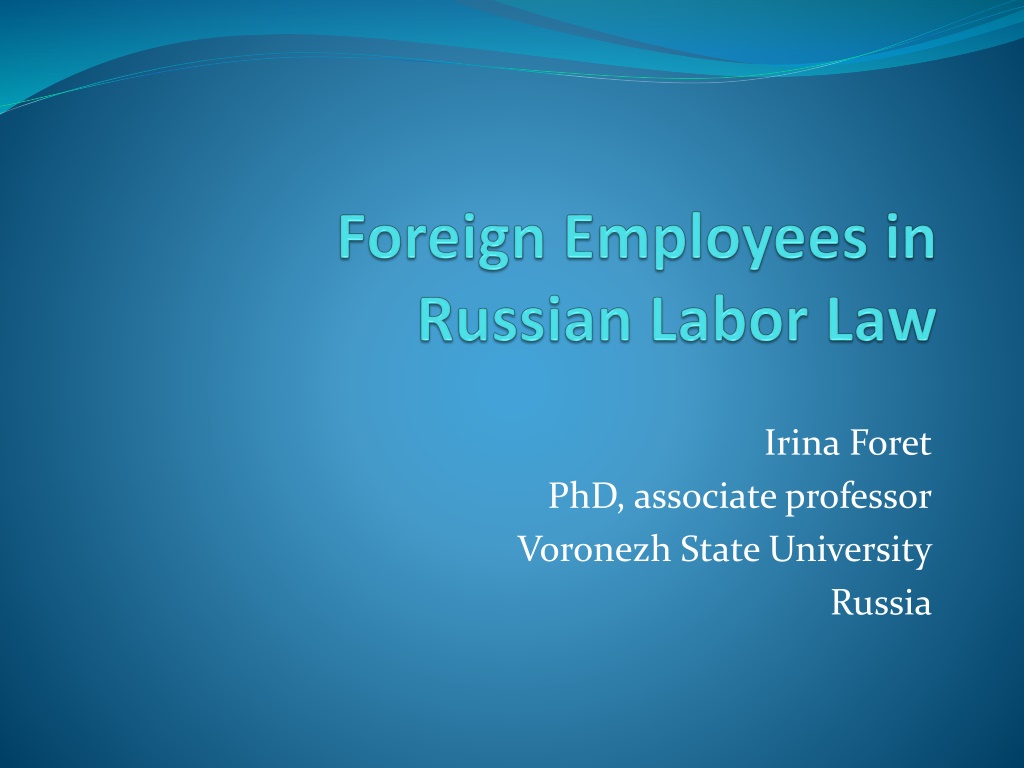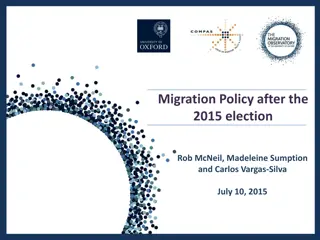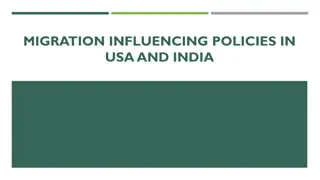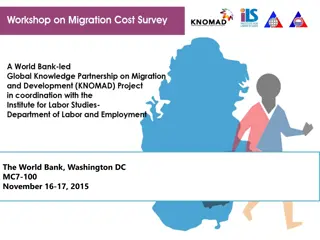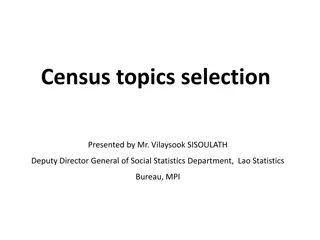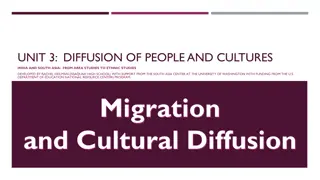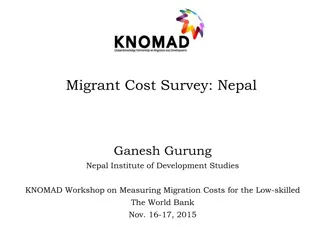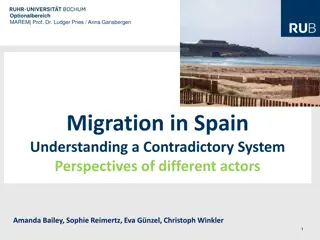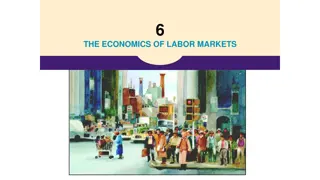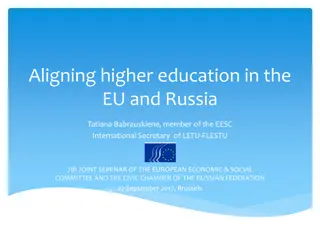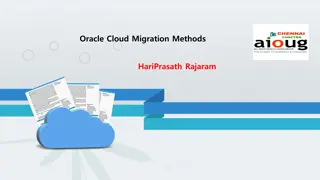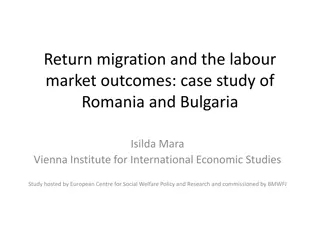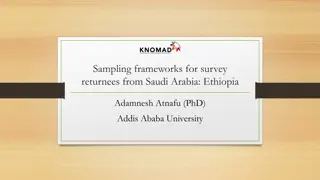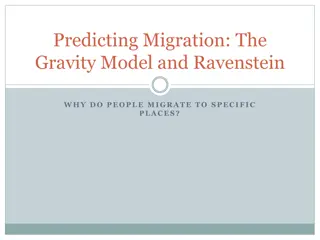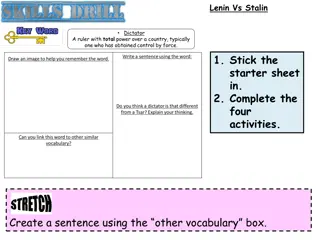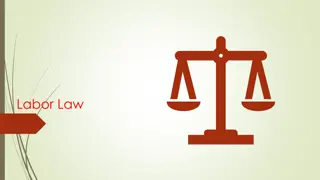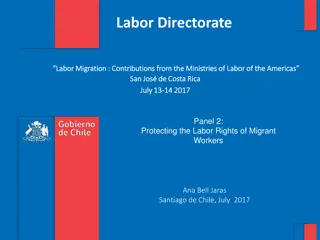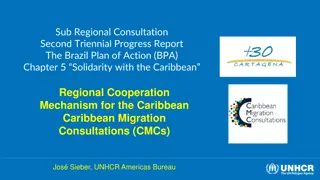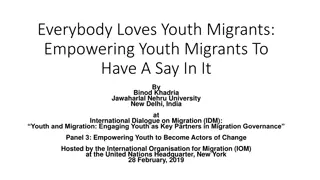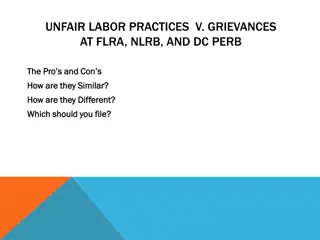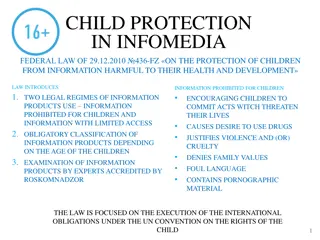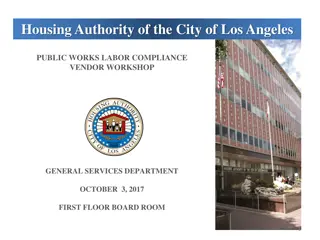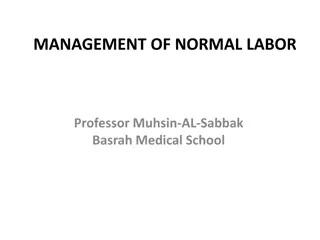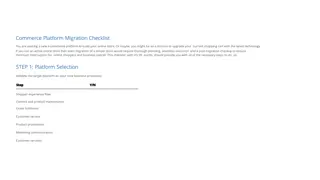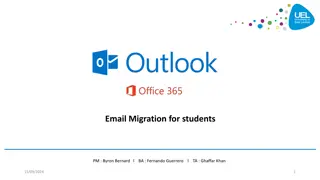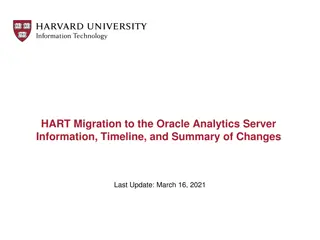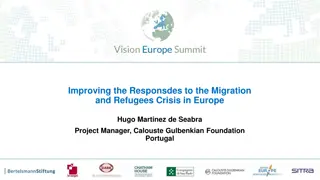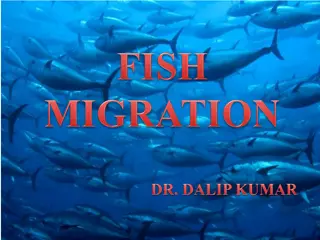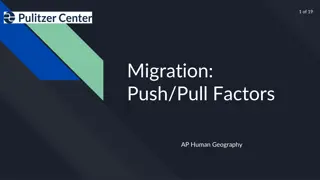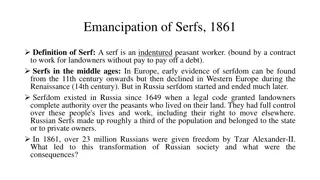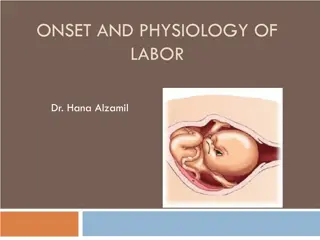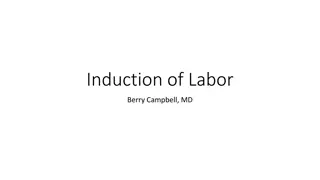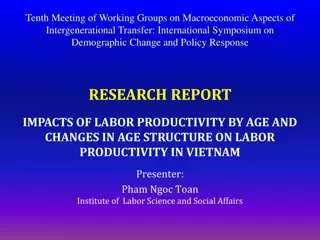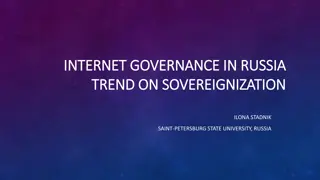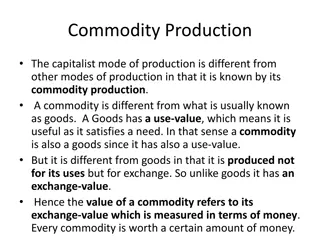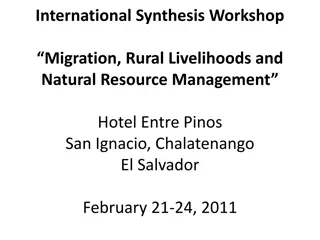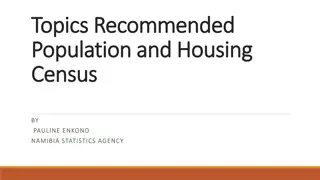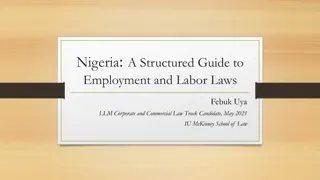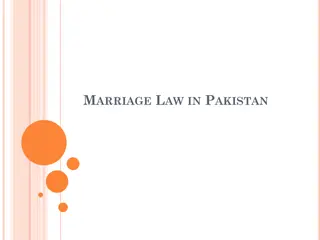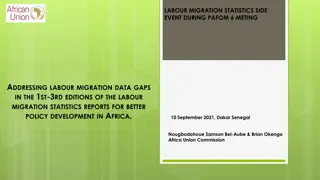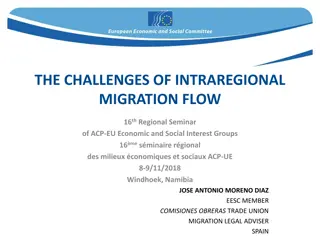Migration Policies and Labor Laws in Russia: A Comprehensive Overview
Irina Foret, PhD, an associate professor at Voronezh State University, delves into the legal status of foreigners in Russia, including work visas, labor rights violations, and legal remedies. Key aspects such as Article 62 of the Constitution and Article 11 of the Labor Code are discussed, highlighting the rights extended to foreign citizens. The article also explores the challenges and regulations in the employment and labor law landscape of Russia, shedding light on the country's position as a major migrant-receiving nation. Additionally, it examines the state policy on migration from 2012 to 2025, emphasizing the simplification of administrative procedures and the immigration of skilled labor migrants.
Download Presentation

Please find below an Image/Link to download the presentation.
The content on the website is provided AS IS for your information and personal use only. It may not be sold, licensed, or shared on other websites without obtaining consent from the author. Download presentation by click this link. If you encounter any issues during the download, it is possible that the publisher has removed the file from their server.
E N D
Presentation Transcript
Irina Foret PhD, associate professor Voronezh State University Russia
Road map to the course Employment and labor law in Russia: general issues Legal statusof foreigners in Russia Russian work visa and work permit Work in Russia as a freelancer of self- employed person Laborrightsviolation: legal remedies
Article 62 of the Constitution of the Russian Federation: Foreign citizens are extended the same rights as Russian citizens, except in instances that have been established by federal law or by an international treaty to which Russia is a signatory member . Article 11 of the Labor Code: Its norms and standards apply to the employment relationship of foreign citizens who are legally employed on the territory of the Russian Federation Article 352 of the Labor Code: Everyone has the right to protect their rights and freedoms by all possible means not prohibited by law
Employment and labor law in Russia: general issues There is no one, unified document of migration rights regulation - Migration Code Federal Law On the Legal Status of the Foreign Citizens Federation. Labor Code in the Russian
Russia is the main migrant receiving country in the region international migrants (2017) 11 651 thousands international migrants a percentageof total population 8.1 % up to 85% of all migrants come from EaP countries and Central Asia majorityare labor migrants officially 2 411 235 foreign nationals are registered legally working in Russia actual numbersof irregular migrantsareconsiderably higher Source: UN: population division, Department of Economic and Social Affaires http://www.un.org/en/development/desa/population/migration/data/estimates2/estimates17.shtml
Concept of the Russian Federation state policy on migration, 2012-2025 simplification of administrative procedures related to the entry and stay of certain categories of foreign citizens in Russia balanced distribution of the population, especially in Siberia, in Far East and other strategically important areas stimulation of Internet migration and removal of administrative barriers that complicate migration within Russia permanent immigration of highly- skilled labor migrants and their families from CIS countries
Labor migrants in the Russian Federation 6 14 9 Ukraine Tajikistan 10 13 Uzbekistan Azerbaijan Armenia 19 Kyrgyjzstan
the number of foreign citizens engaged in labor activities in Russia (thousands of people ) Source: Federal Statistics Service - www.gks.ru
the number of foreign citizens who had a valid work permit, by region-subjects of the federation, (thousands of people) Source: Federal Statistics Service - www.gks.ru
the number of foreign workers engaged in labor activities in Russia, in the total number of people employed in the Russian economy, 1994-2018, (% at the end of the year) Source: Federal Statistics Service - www.gks.ru
legally residing foreign citizens: three statuses Temporary residence Permanent residence Temporary stay unequal rights to the statuses holders; temporary stay is determined by visa validity period
Temporary stay foreign citizens who have visa, migration card but do not have temporary or permanent residence permit
Temporary stay the card is issued in two identical parts stamped by immigration officer upon entrance to Russia - to be presented to the Russian officials It must be written in your migration card that purpose of your stay - work a migration card must be produced along with passport in order to register a foreign citizen. registration must be done within 7 business days since arrival to each place of stay in Russia the period of temporary stay in Russia of foreigners who do not need a visa cannot exceed
Temporary residence temporary residence permit
can be annulled: if the foreign citizen was abroad for more than 6 months, or if he/she repeatedly violated the migration registration rules (Art 7 of the Federal Law on the Legal Status ). is issued within the quota annually established by the Russian government temporary residence permit exceptions: no quota needed if a foreigner have made certain investments in Russia or married a Russian citizen (Art 6 of the Federal Law on the Legal Status ). foreign citizens having the right to temporary residence may work
during this term (not earlier than one year after its start and not later than 6 months before its end), the foreigner may apply for a permit to reside permanently (Art 8 of the Federal Law on the Legal Status ). a period of a temporary residence permit is 3 years temporary residence permit they can work only within the borders of the region where they received permission to work (Art 13 of the Federal Law on the Legal Status ). after receiving - the foreign national is required to obtain registration at the place of residence
Permanent residence can be subsequently extended for the same period an unlimited number of times can be annulled for a number of reasons, including absence from Russia for 6 months this permit is issued for 5 years doesn`t have territorial restrictions
Russian work visa and work permit complicated involving a lot of paperwork and preparation in advance the overall which I 17% down on thequota for 2016. procedure involves both foreignerand theemployer as the and lengthy process for most people, quota for 2017 - 177,043,
impossible to enter Russia on a visa other than a Russian work visa and start working. foreign nationals that need a visa to enter Russia will need a Russian work permit and work visa to work in Russia it`s needed to find a job before applying for a Russian work visa It`s needed to exit the country and re-enter on a Russian work visa
Russian work visa and work permit the employment permit : 1. how many foreign staff can be employed a need for foreign workers - applying for an employment permit and QUOTA it is valid for the length of the employment contract - to renew work visa annually 2. what nationalities they can employ 3. which positions can be filled In many countries work permits are issued as rights for the individual to work in that country. NOT in Russia! non-transferable and allow for only one employment
the worst thing mandatory notifications - you need to notify the migration board on every single action within work with foreigner national otherwise you get fined
Work patent CIS nationals don`t need work permit quotas have to apply for a work patent within 30 days of arriving in Russia 60 days to find employment the work patent is valid for 12 months and is renewable once to obtain a work patent - to pass an exam of Russian language, history and legislation of the Russian Federation
HQS No quotas!!! limits for the number of foreign nationals that may be employed in each business field are allowed to stay in the listed areas only if they have a special permit work permits are issued quicker than work permits for other foreign nationals (14 working days) it is required to notify of the conclusion or termination of employment contracts. When foreign nationals are hired as HQS, employers are also required to submit notices of salary payment
Work in Russia as a freelancer or self-employed person You can apply for a Russian work permit and visa to work as self- employed in Russia using the same system as for employed workers, although you will need to apply to the GUVM for the permit yourself. You will probably need a letter of support from an individual or organisation in Russia justifying the benefit of your self-employment in Russia. When applying for the Russian work visa, you will need to provide the introductory letterthatwould otherwise come from the employer. This applies to the Russian work visa for Indian citizens also. If you are an entrepreneur looking to start a business in Russia that might generate revenue for the country and create jobs, you can look to do this using a Russian Business Visa rather than a Russian Work Visa. You will also be eligible for a Russian residence permit if you are investing a certain amount of money into the Russian economy.
Labor rights violation: legal remedies Basic means to defend one s labor rights and freedoms are: employees being aware of how they can best defend their labor rights, self-defense ; employees being engaged with professional trade unions as a means to protect their labor rights; state regulation and control (supervision), ensuring that all comply with established rules and norms of labor law and other legislation that pertains to labor law; judicial protection, defending one s labor rights in court. As a means where by which an employee can protect his/her own labor rights, the employee can inform the employer or immediate supervisor in written form of the employee's refusal to carry out duties that were not included within the terms of their employment agreement as well as refuse to carry out tasks that directly threaten life or health. An employee can also withhold services in the event an employer fails in the delivery of payment of salary for more than 15 days. During the period of suspension from work, an employee has the right to be absent from his or her place of employment for the duration of the suspension. Meanwhile it is necessary to note that in certain instances, as is provided for by federal law, an employee cannot withhold services. This generally applies to, for example, workers in organizations that serve particularly dangerous types of functions, workers who perform duties in the energy-resource sector, heating, provision of water services, gas, communications, and emergency and medical care providers. A foreign citizen can become a member of a Russian professional trade union and enjoy the protection it provides. Russian professional trade unions can have influence over employers, especially in instances where they are an international trade union and the employer is an international company that values its image and reputation on international markets. The main Russian authoritative branches that regulate and monitor compliance of labor laws are the Prosecutor s Office and the Federal Labor Inspectorate. In the event of a violation of labor legislation by the employer, an employee can file a complaint against his or her employer to these authoritative bodies. The Prosecutor s Office and the Federal Labor Inspectorate have the right to carry out an investigation as to the merit of the case and then make a binding decision to the employer including reinstating an employee who was wrongfully dismissed and awarding the employee for wages in arrears. Even more so, these authoritative branches can initiate proceedings against the employer and its administrators for liability of violations of labor legislation. A complaint filed against an employer for violation of labor law to any of these authoritative branches does not carry any time restrictions or statute of limitations. An employee can file a complaint regardless of how much time has passed since the moment of the violation. Finally, in defense of one s rights, a foreign citizen can seek judicial protection via a Russian court in the relevant jurisdiction. In contract to the Prosecutor s Office and the Federal Labor Inspectorate, if pursuing a legal complaint in court, an employee must do so within a certain time deadline. An employee has the right to file a complaint against an employer in court within three months from the date he/she knew or should have known of the violation. If the subject of the complaint is a claim for lost wages, then the three-month period in which to file a complaint begins from the date of dismissal of the employee by the employer. In disputes related to wrongful dismissal, the former employee can file a complaint in court within one month from the date of either when he/she received notification of dismissal or from the date of issuance of the employment record file. In the event that time deadlines are missed for valid reasons, they can be restored by the courts. A complaint filed by an employee in court is to be filed in the jurisdiction of the employer, its address of federal registration, which is sometimes its legal address. When making a complaint in court, the employee is exempt from payment of state fees and other court related costs. In a complaint filed in court, a foreign citizen has the right to the assistance of a translator in order to have the opportunity of participating in the proceedings in his/her own language. In the event of wrongful dismissal, an employee can expect to be restored to his/her previous position and recovery of lost wages during the period of forced absence. Any violation of labor rights can serve as a basis for reparations from the employer for moral damages. In addition to that, a foreign employee who wins an award against the employer in court, at his/her request can be compensated for costs associated with translator s services, travel and living expenses, as well as for legal fees (lawyers) and other related expenses that were incurred in pursuing legal action.
